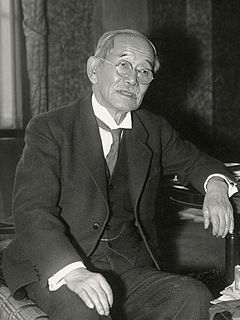A Quote by Philip Yancey
As Ecclesiastes tells it, a wholesale devotion to pleasure will, paradoxically, lead to a state of utter despair.
Related Quotes
The pleasure of despair. But then, it is in despair that we find the most acute pleasure, especially when we are aware of the hopelessness of the situation... ...everything is a mess in which it is impossible to tell what's what, but that despite this impossibility and deception it still hurts you, and the less you can understand, the more it hurts.
For example, I'm terribly proud. I'm as mistrustful and as sensitive as a hunchback or a dwarf; but, in truth, I've experienced some moments when if someone had slapped my face, I might even have been grateful for it. I'm being serious. I probably would have been able to derive a peculiar sort of pleasure from it-the pleasure of despair, naturally, but the most intense pleasures occur in despair, especially when you're very acutely aware of the hopelessness of your own predicament.
An individual in despair despairs over something. . . . In despairing over something, he really despair[s] over himself, and now he wants to get rid of himself. Consequently, to despair over something is still not despair proper. . . . To despair over oneself, in despair to will to be rid of oneself-this is the formula for all despair.
In that one slight motion, I see the end of hope, beginning of destruction of everything I hold dear in the world. I can't guess what form my punishment will take, how wide the net will be cast, but when it is finished there most likely be nothing left. So you would think that at this moment, I would be in utter despair.
The signs that presage growth, so similar, it seems to me, to those in early adolescence: discontent, restlessness, doubt, despair, longing, are interpreted falsely as signs of decay. In youth one does not as often misinterpret the signs; one accepts them, quite rightly, as growing pains. One takes them seriously, listens to them, follows where they lead. ... But in the middle age, because of the false assumption that it is a period of decline, one interprets these life-signs, paradoxically, as signs of approaching death.
Sorrow, terror, anguish, despair itself are often the chosen expressions of an approximation to the highest good. Our sympathy in tragic fiction depends on this principle; tragedy delights by affording a shadow of the pleasure which exists in pain. This is the source also of the melancholy which is inseparable from the sweetest melody. The pleasure that is in sorrow is sweeter than the pleasure of pleasure itself.
I wanted to experience both. I wanted worldly enjoyment and divine transcendence. I wanted what the Greeks called kalos kai agathos, the singular balance of the good and the beautiful. I'd been missing both during these last hard years, because both pleasure and devotion require a stress-free space in which to flourish and I'd been living in a giant trash compactor of nonstop anxiety. As for how to balance the urge for pleasure against the longing for devotion...well, surely there was a way to learn that trick.
But the truth, he knows, is otherwise. His pleasure in living has been snuffed out. Like a leaf on a stream, like a puffball on a breeze, he has begun to float towards his end. He sees it quite clearly, and it fills him with (the word will not go away) despair. The blood of life is leaving his body and despair is taking its place, despair that is like a gas, odourless, tasteless, without nourishment. You breathe it in, your limbs relax, you cease to care, even at the moment when the steel touches your throat.


































